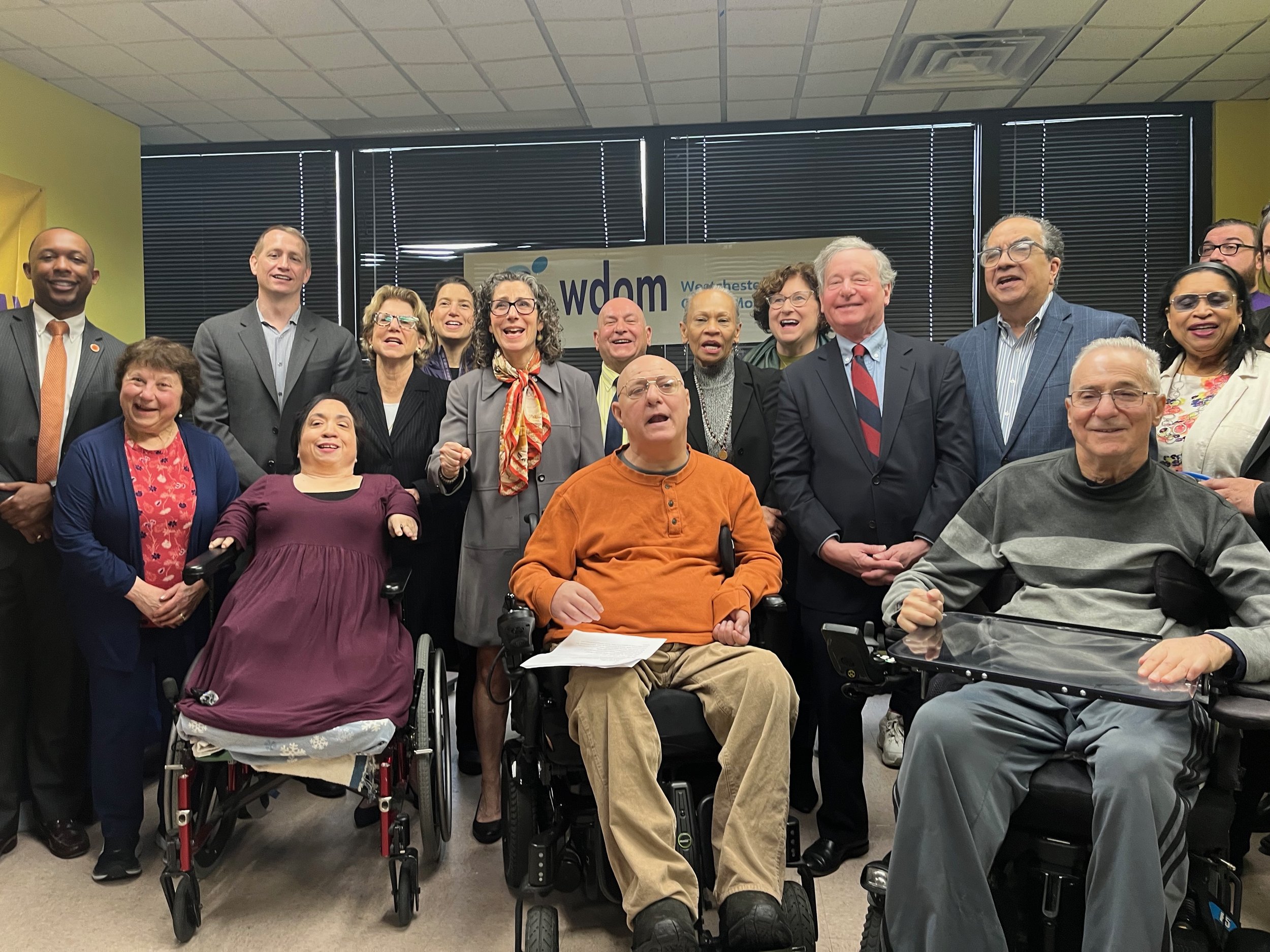Listen: Disaster in Baltimore; Havoc in New York…
NYS Governor Kathy Hochul wants to cut Medicaid funding — the impact on those in most need of home care would be devastating. Photo/1199SEIU
By Bob Hennelly
On this episode of the Stuck Nation Labor Radio Hour, we’re talking about two disasters — one that’s already happened in Baltimore, and another that’s about to happen in New York.
A week after the collapse of Baltimore’s Francis Scott Key Bridge, the bodies of the four of the six immigrants who were killed working on the non-union road construction repaving project on the span still had not been recovered. They fell 185 feet to their deaths after the Dali, a rudderless cargo ship without a tug escort, slammed into the bridge bringing it down.
The non-union highway crew from Maryland-based Brawner Builders were immigrants that hailed from Guatemala, Honduras, El Salvador, and Mexico.
While the corporate media reports this as a freak accident, immigration and labor advocates know that this disaster has been in the making for years because of a brutal global trade regime that all too often puts profits way ahead of worker and community safety.
In Part I of this week’s show, we talk about the Dali disaster with Roland “Rex” Rexha, secretary-treasurer of the Marine Engineers Beneficial Association, the nation's oldest maritime union, and Gary LaBarbera, president of the Buildings and Construction Trades Council of Greater New York representing 200,000 tradespeople. Rexha and LaBarbera explain why in high stakes sectors like maritime and construction, unions really matter, not just for the workers and their families, but for the community, the environment as well as the stability of the entire economy.
The Port of Baltimore has been closed until further notice — the economic fallout for working families and the region will be in the billions of dollars.
Rexha also zeroes in on how international maritime giants use the pretext of automation to reduce onboard staffing while cutting costs by avoiding tugboats escorts as they did in the Port of Baltimore. LaBarbera describes how immigrant construction workers, like the overnight non-union crew on the Francis Scott Key Bridge, are at a much greater risk from workplace injury and death than are their union counterparts.
In the second half of the show, we get an update on what's at stake for thousands of disabled and elderly New Yorkers who rely on home healthcare if Gov. Hochul proposed cuts to Medicaid go through and homecare workers see a $3 hour wage cut. Meanwhile, four long term care private insurance companies pulled in $18 billion in profits in 2023, thanks to a decision by the State of New York more than a decade ago, to hand them the franchise to run home healthcare in the state supposedly to create savings which never materialized.
Getting rid of the private insurance middlemen would save $3 billion annually.
We hear from Geri Mariano, 56, who relies on her home health aides to live independently. Born in 1967, at White Plains Hospital, she was abandoned by her biological parents when it was apparent she had congenital deformities, later diagnosed as Diastrophic Dwarfism/Dysplasia.
Thanks to Westchester County social workers, Mariano, who had been a ward of the state, was placed in a home with a loving family who raised her. She’s gone on to live an independent and productive life including earning a master’s degree.
Now, having lived in North Castle for nearly 52 years, she’s terrified she will be “forced into deadly and abusive nursing homes in light of Gov. Hochul’s proposed draconian budget cuts to home care, specifically to consumer directed personal assistant programs. “
Mariano is joined by IIana Berger, New York Director of Caring Majority Rising.
Listen to the entire show below:

